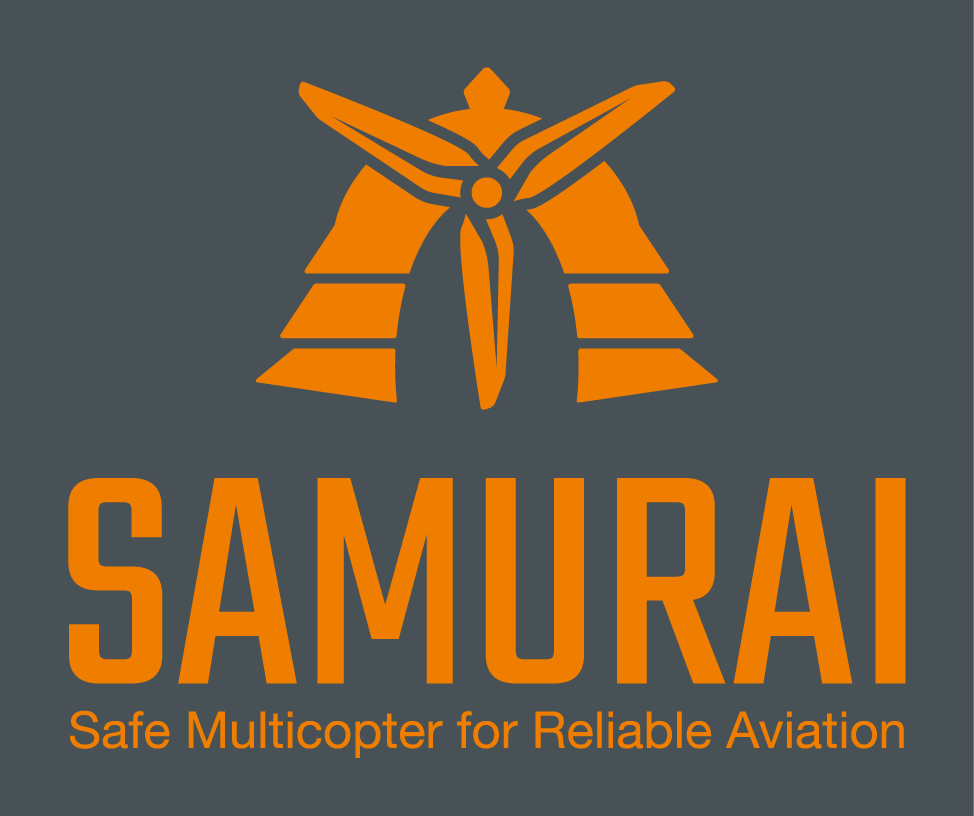FFG Safe Multicopter for Reliable Aviation (SAMURAI)

As technology progresses and pushes boundaries, more and more use cases for uncrewed aerial vehicles (UAVs) emerge through these new possibilities. The increased application of UAVs raises the need for safe aviation through design and operation modes adapted to flight in inhabited and urban spaces.
The FFG project Safe Multicopter for Reliable Aviation, in short SAMURAI, contributes to the fail-safe and resource-efficient operation of UAVs by developing an easy certifiable reference design with established development flow and verification processes. A load-optimized Y-shaped hexacopter (redundant propulsion system) with a maximum take-off mass of up to 25kg and advanced features to ensure robustness and safety during operation (e.g., advanced health measurements of the propulsion system, redundant flight controls, ...) serves as a reference for reliable high-performance multi-rotor platforms. This project has a strong interdisciplinary character and an exciting combination of various technical disciplines, including electronics engineering, embedded systems, control engineering, mechatronics, power electronics, sensor technology, and advanced algorithms for robot localization.
Outcomes of the FFG project SAMURAI that advance beyond the state-of-the-art and lead to innovation in the field of safe UAVs are:
- Safe Hardware: Lightweight composite materials designed to ensure structural stability during operation with a redundant propulsion system. Provide ample and secured mounting points for electronic components to facilitate modularity.
- Safe Electronics: State-of-the-art silicone technology in the form of GaN-based power electronics combined with today’s microcontroller processing capabilities (smart ESCs) allow for reduced weight and improved reliability.
- Safe Flight-Control Software: Redundant software stacks implemented on modern multicore embedded systems ensure safe control of the platform through a minimal and fail-safe set of sensors (barometric pressure and IMU) combined with robust localization based on equivariant observer theory and a MISRA C certified implementation.
- System Integration: All components of the SAMURAI multirotor platform will be tested against AEC-Q100 and ISO 26262 standards allowing for safety-certified components in a modular system.
SAMURAI combines the expertise of Austrian companies and research organisations in the field of multi-rotor hard- and software. The team consist of University of Applied Sciences Vienna Technikum Wien (UASTW), University of Klagenfurt (AAU) at AAU the Reseach Group Control of Networked Systems (CNS), Infineon Technologies Austria AG (IFAT), and Twins GmbH (TWINS).
This project is funded by the FFG (Take Off call 2023) under grant FO999913968 and coordinated by the UASTW. Partners in this project are the AAU, IFAT and TWINS.
Project Duration: Oct. 1, 2024 to Sept. 30, 2027


